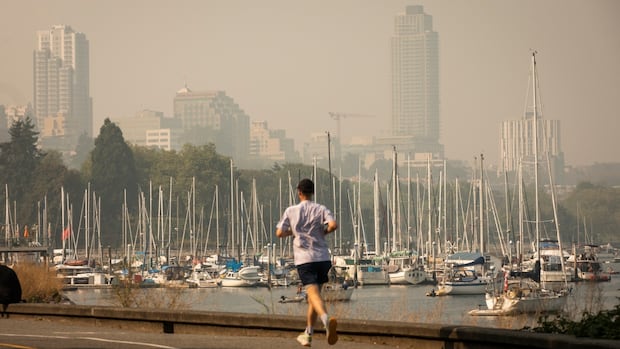Air quality advisories have been put into place throughout British Columbia due to the ongoing presence of wildfire smoke covering the region. Metro Vancouver and the Fraser Valley issued an air quality alert on Wednesday, citing heightened levels of fine particulate matter from the smoke originating from fires east of Hope, near Whistler, in the Cariboo region, and from south of the border.
The regional district anticipates the haze to linger for several days as the smoke continues to drift into the area. Residents are advised to minimize outdoor activities, monitor symptoms, and check on family and neighbors. Dr. Sarah Henderson from the B.C. Centre for Disease Control emphasized that the gases and particles from the wildfire smoke could persist over the next few days, affecting the health of individuals in the region.
Environment Canada has also released air quality advisories for the Interior and northeast areas due to the smoke, with expectations that the advisories will remain in effect until Friday. Recommendations include keeping windows closed, utilizing air filters or portable air cleaners indoors, and following additional safety tips during smoky conditions.
While the smoke may temporarily limit fire behavior by acting as a cover, the dry and hot conditions in the province have made the fuels highly prone to new fire starts. As of Wednesday, there are 155 active wildfires in British Columbia, with 11 new fires reported in the last 24 hours.
The ongoing Beef Creek Trail wildfire in the Cariboo region has prompted evacuation orders for multiple areas and continues to burn aggressively, expanding to approximately 78 square kilometers. Heat warnings have also been issued for various regions in the province, with temperatures expected to soar into the mid-30s, breaking previous records in some areas.
The prolonged heat and smoke conditions pose health risks, particularly for vulnerable populations, and are expected to persist until Thursday in some regions. The high-pressure system over British Columbia is contributing to the extreme weather patterns, necessitating precautions to safeguard public health and well-being.



